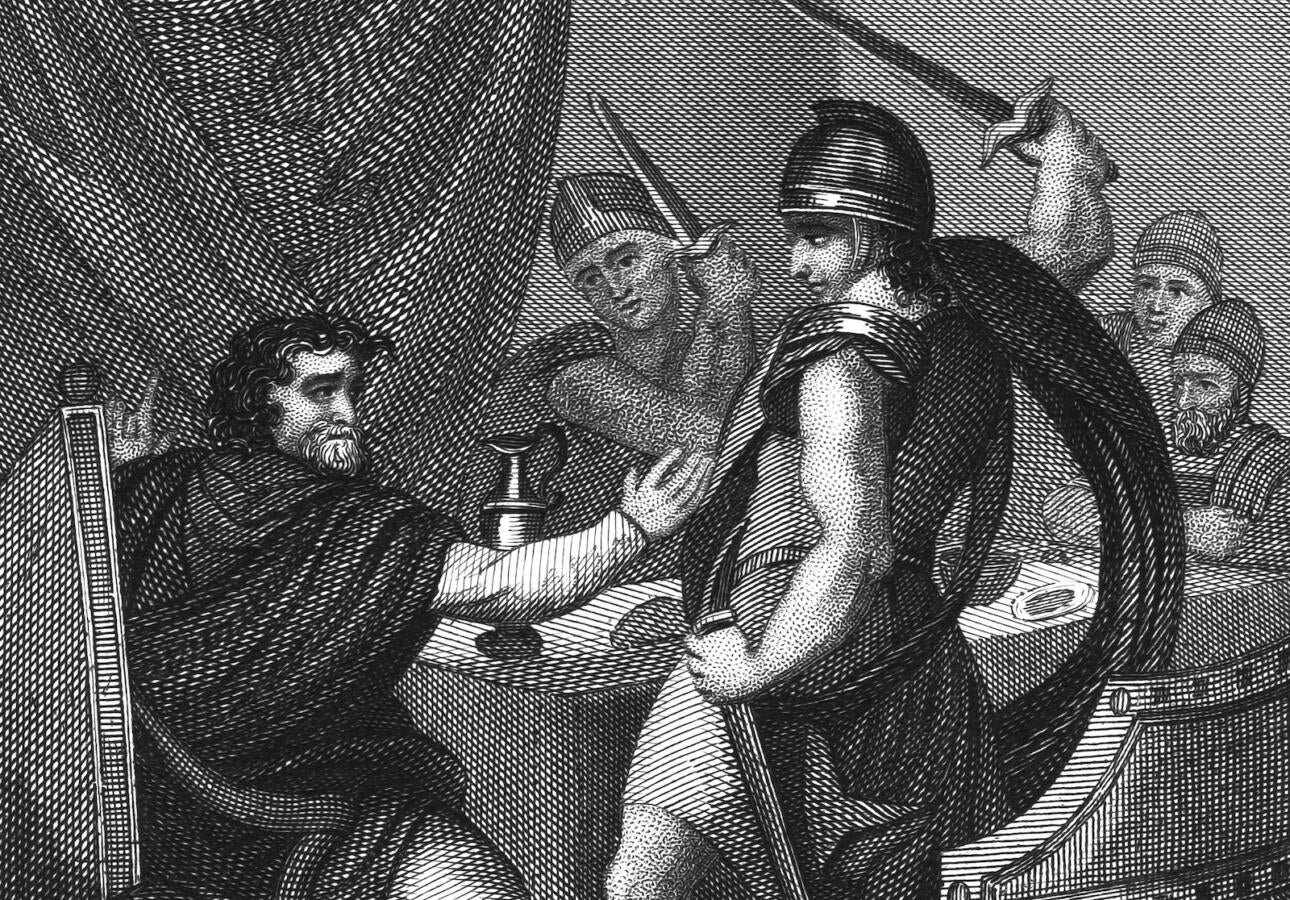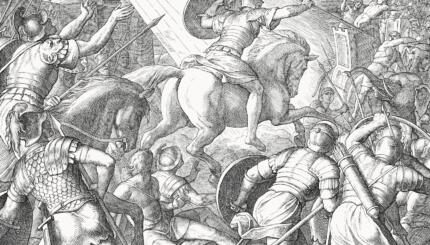Political assassinations are shocking events. In my parents’ generation, people asked: “Where were you when Kennedy was shot?” In my generation, it is the assassination of Yitzhak Rabin that is most memorable.
The Jewish calendar too has a day that commemorates a political assassination: The Fast of Gedaliah, observed on the day following Rosh Hashanah, honors a man who was neither king nor prophet, though he did come from an important family.
Gedaliah’s father was Ahikam, who saved the prophet Jeremiah from being executed by King Jehoiakim. The monarch had just slaughtered Uriah the son of Shemaiah, a prophet with the same message as Jeremiah. Gedaliah’s grandfather, Shafan, was the royal scribe for King Josiah, and was involved in finding the lost book of Deuteronomy when cleaning the Temple, leading to Josiah’s religious revolution.
Even so, Gedaliah’s power and influence were rather limited. He was merely the man King Nebuchadnezzar of Babylon appointed as governor of Judah after the conquest and destruction of Jerusalem in 586 BCE. Nor was he governor for a long time.
With your help, My Jewish Learning can provide endless opportunities for learning, connection and discovery.
The Bible doesn’t specify the length of Gedaliah’s tenure, and many assume it was only for a few weeks, given that Jerusalem and its Temple were destroyed in Av, the fifth month, and Gedaliah was assassinated sometime in Tishrei, the seventh month. Nevertheless, the Bible doesn’t give a year for this assassination, and it’s hard to picture the whole story taking place in two months. As Nebuchadnezzar campaigned again in the Levant in 582 BCE, it seems likely that this was, at least in part, motivated by the assassination of his appointed governor, so we can guess that Gedaliah’s tenure lasted around four years.
Assuredly, his tenure was a positive one. The Book of Jeremiah relates how Gedaliah calmed the people, telling them that the Babylonians were done punishing Judah and they should harvest their crops and continue on as normal. Even Judeans who had escaped to neighboring countries returned and resettled their towns. As governor, Gedaliah won over many of the important players in Judah, including the prophet Jeremiah and a military leader named Johanan son of Kareach.
While these are no doubt worthy accomplishments, this cannot explain the day of mourning. We do not mourn the death of Moses, even though he was our greatest prophet. Nor do we mark the suicide of King Saul or the sudden killing of King Josiah by Pharaoh Necho, even though both these tragedies are immortalized by the Bible in poetic eulogies. So why Gedaliah?
That Gedaliah’s death was an assassination of an Israelite by an Israelite is certainly part of it, but it can’t be the whole story. The Book of Kings contains many accounts of Israelite and Judahite kings assassinated by their people — eleven, if you were wondering. So again, why Gedaliah?
To understand Gedaliah’s significance, it helps to see it in the context of what the rabbis call the four fasts. The Book of Zechariah tells us that following the destruction of the First Temple, the Judean survivors developed a custom of marking the event with a series of four fasts in four different months, each marking a different stage of the campaign:
- Tevet: The beginning of the Babylonian siege
- Tammuz: The Babylonians break through Jerusalem’s wall
- Av: Destruction of the Temple
- Tishrei: Assassination of Gedaliah
The first three are all a consequence of one action: rebellion against Babylonia. Judah was a small kingdom, nestled between two world empires at war, Egypt and Babylonia, each hoping to swallow up the Levant. Babylonia was the stronger of the two, but Egypt was much closer to Judah. The pressure on King Zedekiah was immense, and his court prophets told him opposite things: Hananiah preferred rebellion against Babylonia and entering the orbit of Egypt; Jeremiah pushed for the opposite.
In the end, Zedekiah chose rebellion. The first three fasts mourn the inevitable consequences of that decision. The fourth, however, is something else entirely.
The assassin was a man named Ishmael son of Nethaniah, a scion of the house of David. His gripe was personal: The ruler of Judah must be from the Davidic line; Gedaliah didn’t qualify. So Ishmael gathered some men around him and during a feast, perhaps that of Rosh Hashanah, killed him. When the Babylonians learn of it, Nebuchadnezzar’s army returns and Judah is from then on ruled by a Babylonian governor until the Persian conquest. Many flee to Egypt, leaving Judah sparsely inhabited.
On one level, then, the Fast of Gedaliah mourns the end of any semblance of Judean self-rule. But there is more. In the first three fasts, the Babylonians were the enemy and we mourn our collective loss to their hostility. In the fourth, the Babylonians have little if anything to do with our problem: The enemy is ourselves. The understandably wounded pride of a scion of David leads to a pettiness that makes him willing to throw away the entire settlement of Judeans in their land.
In other words, the first three fasts mourn our loss to an outside enemy. The last mourns our loss to ourselves.
This article initially appeared in My Jewish Learning’s Shabbat newsletter Recharge on September 27, 2025. To sign up to receive Recharge each week in your inbox, click here.



